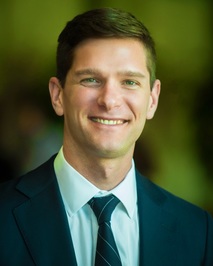 Peter Gow Peter Gow We’re halfway through our week-long new teacher program at my school, and it’s going well. They have their laptops and have had a whole lot of training on the way we utilize the Google suite of applications, they’ve had a thorough, stop-and-meet-the-office-folks tour of the school, and they’ve had time to sit with their division directors and not-their-division directors (always seems nice to foster some cross-divisional interaction); they’ve had time to get into curriculum planning with their department heads, and yesterday they even had a panel of students who just shared their experiences of teachers here. Every year we tweak the program based on some end-of-year feedback from the previous cohort, but by and large the program remains essentially the same from year to year. Now that we’ve been doing this for almost 15 years we have some principles and our goals pretty much down pat. Shifting to a very tech-intensive, laptop-enabled environment had us adding a big chunk of content, and we learned a few years ago that cutting a few workshops so that new folks could connect with department leaders and teachers sharing courses made the prospect of actually teaching a curriculum to actual kids a little less daunting. The goals of the program are pretty basic:
All of this reminds us, in a human sort of way, that starting work at a new job in a new school is really hard. We try to acknowledge the anxieties that the new folks bring, often by referring to our own. “You’re never too experienced for pre-school sleeplessness,” we tell them, and this seems to help, at least a bit. I can recall being haunted by the names on class lists before starting my first job; it was like a nightmare version of the roll-call at the end of Goodbye, Mr. Chips. “It will get better,” we tell them, and our biggest single intended lesson is, “You are NEVER alone as a teacher here.” I think our school culture, once the year is under way, is consonant with that assertion. But the big lesson, and there isn’t much we can learn from it except to accept it as part of the messiness of working in a place and a profession full of people—people whose needs, aspirations, and differences we are bound not only to accept and to celebrate but to accommodate as best we can within the framework of our own goals and aspirations as well as the school’s mission—is that the new teacher week will always feel like way too much when it is happening and will seem way too little in retrospect. Sometimes the balance between such contrasts is the best we can hope for, and I think that’s okay. But it doesn’t mean that we won’t continue to seek feedback and to make changes where we can. The main thing, though, is that our new folks will at least start the year with a pretty good sense of how the place works and what and where the resources are that can make their lives better. In my head there is a countdown to the first day of classes, but nowadays it’s largely a happy background noise. I remember, though, being at the stage in my career when that countdown felt like the voice of Dick Clark at New Year’s Eve of 2000, with the all excitement and nervousness around the Millennium—and the Millennium Bug. And that all worked out just fine, now, didn’t it? (BTW: Next up for our new faculty: advising, parent panel, quick overview of our philosophy around curriculum and assessment, quick intro to design thinking, and living and working in a multicultural community–plus more quality time to plan and talk specific academic policy stuff with department leaders.)
0 Comments
 Brad Rathgeber, Executive Director Brad Rathgeber, Executive Director A couple of weeks ago I was in Las Vegas for the annual Sloan Consortium Emerging Technologies Conference. And, I have to say, it was fascinating experience. The theme of the conference was (probably no surprise to those following educational technology trends over the last number of years) the personalization of the educational experience. I went to the conference with a particular focus: to explore data analytics and the work coming out of colleges and universities to advance this field. I know that data analytics hold great promise for K-12 education, and yet I’ve been wrestling with their place within the independent school environment. For generations now, we have told families: “we know your son/daughter; we know how they learn; we will give them the personalized attention and support that they need to succeed.” And yet, we can all admit that even with our low student-teacher ratios, our advising systems, and our tight-knit communities, we do still have students who “fall through the cracks” every so often, despite our best efforts. I went to Vegas to see if there was anything that we could be doing to ensure that students don’t fall through the cracks, but more importantly, to see if there was anything more that we can do to predict which students might be on the verge of falling through the cracks in our classes and prevent that from occurring. The answer seems to be both yes and no. One of the most interesting and anticipated sessions of the conference was on the preliminary findings of the “Predictive Analytics Reporting Framework.” This project, funded by the Gates Foundation, was formed to try to determine whether there were predictive analytics across schools that could help determine student success in online courses – that is: are there any data points across many schools that can help predict the success of students before success or failure becomes apparent. The goals of the project are noble: to figure out ways to increase graduation rates, lower drop-out rates, and help students succeed. The findings so far: while each school might be able to identify predictive analytics for their campuses (and many do), the study has yet to find predictive measures valid across all campuses. That said, it was also clear to the researchers that different learning environments create important variables on the institutional level. In other words, student success is greatly impacted by the academic environment created by schools (I am sure a few of you are thinking, “well you didn’t have to go to Las Vegas to understand that, Brad”). And yet, within schools data points can be developed to understand when a student is going to falter before failure occurs so that there can be an intervention from the start. My primary take-aways from the conference focused on what advantages and challenges independent schools have in thinking about using data more effectively to enhance student learning outcomes and greater personalize their educational experience:
|
Don't miss our weekly blog posts by joining our newsletter mailing list below:AuthorsBrad Rathgeber (he/him/his) Archives
July 2024
Categories |

 RSS Feed
RSS Feed